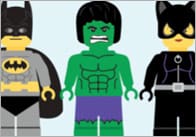The importance of Children’s Book Week (part 1)
It didn’t take the years of working towards a degree in psychology to help me understand why it’s important. Nor did it take 2 decades of working at the highest level in Human Resource Recruitment. It took becoming a working storyteller which I’ve been for the last 15 years to understand what makes children’s book week vital and this is why I believe it to be so:
Going back a few decades, prior to television and the age of technology, electronics and computer games etc people communicated with each other almost continuously. When not otherwise employed, either at work or in the home, almost every waking moment was taken up with verbal communication with those around you. People would sit around in the evenings talking and telling of their day’s events. Passing on things they had heard during the day with those who wanted to be the centre of attraction, embellishing the truth for greater effect. People in general, were tellers of stories and for the children this was an important part of growing up and learning not only the vital art of verbal communication and being confident and comfortable with it but also about being taken into the circle and being trusted, and hearing about family issues as well as the world around them and learning where they fitted in.
In those bygone times the day would begin with a discussion of the previous days’ events. Adults (usually mother) would talk and also ask questions, children would reply, mother would give her responses and would interpret meanings and explain situations, all the while and usually unconsciously communicating with the children and also unconsciously, instilling principles and values as she spoke.
Some children were even lucky enough to have bedtime stories read to them or told orally. Sometimes parents or grandparents or whoever, would just tell about the days events, what had happened on the way to work or who had turned up unexpectedly, because people did so frequently in those days, before everyone had telephones and they would talk about other family members in great detail so children then, knew all about their extended family and as most adults would agree, children just love this kind of thing. At this time of telling stories, a real emotional bond was created between teller and listener which gave the child a real sense of belonging and of being a valued and important part of the family. This knowledge was of course, intrinsic.
Best of all was to be told the old traditional tales and this indeed was a bonus. Teaching children about the dangers of life and about the good guys and the bad guys, who usually got their comeuppance and about things worth knowing… and in doing so passing on the knowledge of how talking, sometimes solves the problem on it’s own. This was how children learned and also learned how to communicate, also the way in which to communicate. The difference between how one spoke to an elder as opposed to a sibling for instance. Every little nuance of the adult’s voice was picked up on and children quickly understood the difference between what was good and what was bad, what was right and what was wrong. This was the beginning of learning about empathy and rapport. It was also the beginning of children understanding about boundaries… This knowledge was also intrinsic.
Now that the everyday, ongoing storytelling as we knew it then no longer exists, it is vital that children are still told stories, that there is still the opportunity to create that bond between the child and the grown up and to make that child feel that they belong because without this, well we know don’t we, because we see the evidence of it everyday. So many young people now are disengaged from their families and feel lost, unimportant and undervalued. They have no real sense of belonging, precious little sense of empathy or rapport and have little or no knowledge of their own culture or family history. Nobody does this talking thing anymore they tell me. Deep down these young people feel unwanted and unloved… and how do I know this?
For the last 8 years I have also been working with teenagers and young adults who have been excluded from mainstream school, hundreds of them and usually for behavioural issues but when I get to talk to them and they open up, it’s always the same story. They feel as if they don’t belong, as if no one cares about them and that they are worthless. The effect that storytelling has on them now is mind blowing proving that it’s never too late to show them where they belong and how they are valued.
Rona Barbour works as a storyteller visiting schools and institutions all of the UK and abroad. She is also the ‘Storyteller In Residence’ for Education in Action Zone, Liverpool. You can get in touch with her by email ronabarbour41@hotmail.com or via her website www.Thestoryteller.co.uk.
Popular Teaching Resources
Stay Up To Date
Sign up for our newsletter and we’ll let you know when we create new early years resources.





